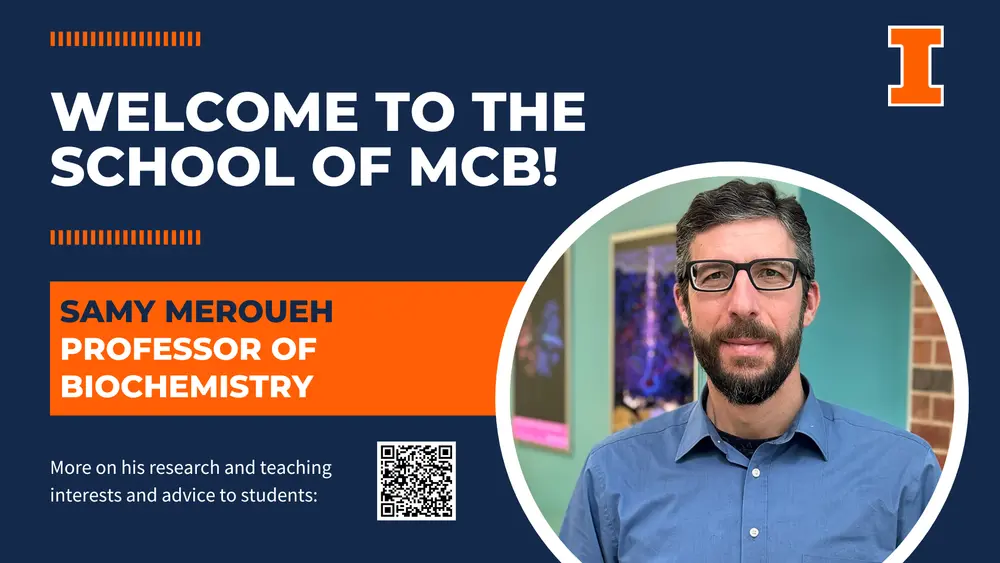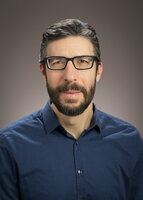
The School of Molecular & Cellular Biology and Department of Biochemistry are pleased to welcome Samy Meroueh as a new professor of biochemistry this spring. He joins us from the Indiana University School of Medicine. We spoke with him about his research and teaching interests and how he spends his time outside the lab.
Tell us about your lab and your research focus, including how you came to choose or specialize in this area.
We develop small molecules to inhibit or degrade proteins implicated in tumor growth, invasion, and metastasis. We work with proteins that are known as undruggable because they usually lack a well-defined binding pocket, or they are involved in high-affinity protein-protein interactions. We are interested in RAS and Rho GTPases, TEAD and ETS transcription factors, and HPV E6 oncogenes.
The approach that I follow in my research evolved over time. My graduate studies provided me with a deep understanding of chemical reactivity and molecular recognition. My postdoctoral training in bioorganic chemistry taught me how to design, prepare and characterize enzyme covalent inhibitors. As a faculty member in a school of medicine, I was motivated to pursue a translational approach in my work, which meant developing lead compounds that can be explored in animal models for the development of cancer therapeutics.
What is especially exciting about this particular area of research, at this time?
Until recently, the most promising protein targets in cancer were considered undruggable. But new developments, such as the ability to develop covalent inhibitors with reactive groups that can react with amino acids other than cysteine, or the ability to develop small molecules that can use the cell’s own recycling machinery to degrade a protein, means that no oncogene is considered out of reach for drug development. In fact, the FDA recently approved a covalent inhibitor of the KRAS oncogene that harbors an uncommon G12C mutation for treatment of lung cancer.
What interested you the most about becoming a faculty member here?
The quality and impact of the science from faculty in the School of Molecular & Cellular Biology (SMCB) and School of Chemical Sciences (SCS). Also, access to quality students was another important factor.
What are your teaching interests?
I will be teaching a course in drug discovery.
If any students (undergraduate or graduate) are interested in working in your lab, what’s your advice or how can they get in touch with you?
Please contact me at smeroueh@illinois.edu or come by my office currently in Roger Adams Laboratory (RAL) 321.
Tell us about someone who made a difference in your life, such as someone who sparked your interest in biology, who encouraged you to pursue a career in academia or challenged your thinking about a topic.
My undergraduate mentor, Martin McClain, who encouraged me to pursue a graduate degree in chemistry; my graduate school mentor, William Hase, who taught me rigorous modeling of chemical reactions; and my postdoc mentor, Shahriar Mobashery, who trained me in the development of covalent inhibitors, and I am grateful to him and Jed Fisher for preparing me for a career in academia.
What do you like to do in your free time?
I love swimming and running, especially outdoors.
